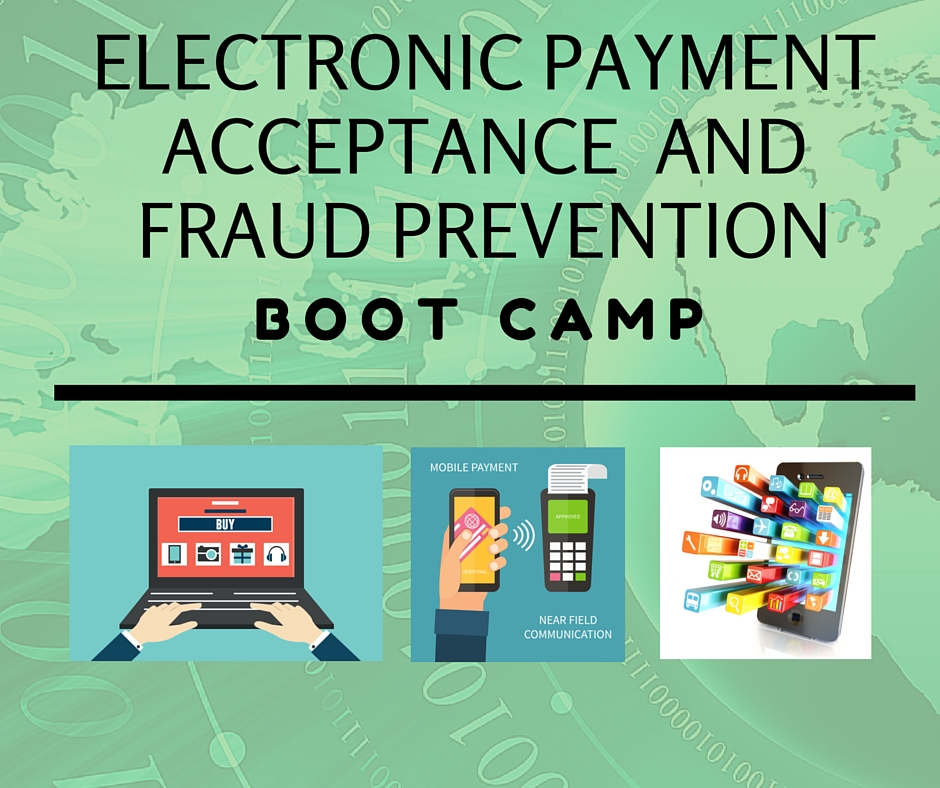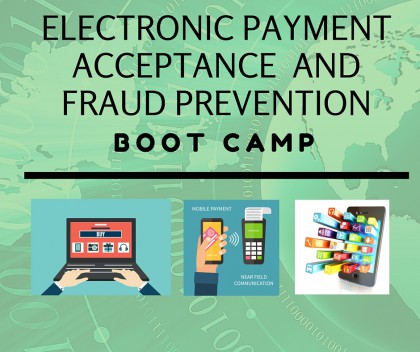Description
When an entrepreneur decides to embark in e-commerce, one of the concerns that must be dealt with is the setting up of payment acceptance in various forms and how can you prevent yourself from becoming a victim to various buyer scams.
 Training objectives:
Training objectives:
- Enable participants to know their various options in accepting online payments and how to make it possible.
- Define the infrastructure and processes to be setup to accept online payments.
- Understand buyer fraud and how to protect yourself from it.
- Working with authorities when dealing with fraud.
Target audience:
- Entrepreneurs wanting to accept electronic payments and understand the responsibilities that comes along with it.
- Operations personnel who will handle the day-to-day processing of orders and wanting to understand how to spot fraudulent purchase attempts.
- Financial personnel who would like to understand the ins-and-outs of electronic payment acceptance and how to protect the company from liabilities and losses.
Topics: (click on lesson title to view the lecture video and access the handout)
Lesson 1: Introduction to Electronic Payment Acceptance
An overview on various electronic payment facilities and services available today that merchants can consider in doing e-commerce.
Lesson 2: Online Credit Card Payments
Understand how online credit card payments work, service charges, the various service providers in the market, getting a merchant account, chargeback, and fraud handling.
Lesson 3: Mobile E-Payments
Understand how mobile payments work, service charges, the various service providers in the market, getting a merchant account, and fraud handling.
Lesson 4: Non-Credit Card E-Payments
Understand how non-credit e-payments work, service charges, the various service providers in the market, getting a merchant account, and fraud handling.
Lesson 5: Virtual Currency E-Payments
Understand how virtual currency payments work, service charges, the various service providers in the market, getting a merchant account, and fraud handling.
Lesson 6: Getting your site ready to accept electronic payments
Know what components need to be in place for your site to accept electronic payment such as shopping cart, secure sockets layer, test transactions, error handling, duplicate orders, among others.
Lesson 7: E-Commerce Taxes
For all products and services sold online, merchants are expected to issue official receipt to its buyers and pay the corresponding taxes. In this session, discussion on BIR e-commerce tax policies will be discussed.
Lesson 8: E-Payment Policies
Before accepting electronic payments, a merchant must have the following in place:
- Data privacy policy
- Terms and conditions
- Refund policy
- Replacement policy
This session will discuss the creation of these policies and the content it must have.
Lesson 9: Consumer Identity Authentication and Verification
Steps merchants and operations personnel can to take to authenticate and verify the identity of a buyer.
Lesson 10: Handling high risk orders
Precautions merchants can put in place to handle high risk orders that includes insurance, manual review, behavior tracking, device identification, among others.
Lesson 11: Work with 3rd party service providers
When price value or fraud risk exposure of products is high, established merchants would often consider working with 3rd party for fraud screening, document verification, and getting issuer alerts. This session will discuss what you need to know about these services and when would you need it.
Lesson 12: E-Commerce Security and Working with Law Enforcement Authorities
When fraud attempts happen, either successful or not, with the Cybercrime and Data Privacy Law, merchants can sought the help of authorities and pursue legal action. This session will give an overview on the security measures once must take on an e-commerce website. Preservation of evidence, filing a report with law enforcement authorities, and filing a case in court will also be discussed.
For inquiries about this boot camp, contact Janette Toral at 0917-4490011 or send her a private message via Facebook.
Your use and membership in this boot camp site is governed by our terms and conditions.





